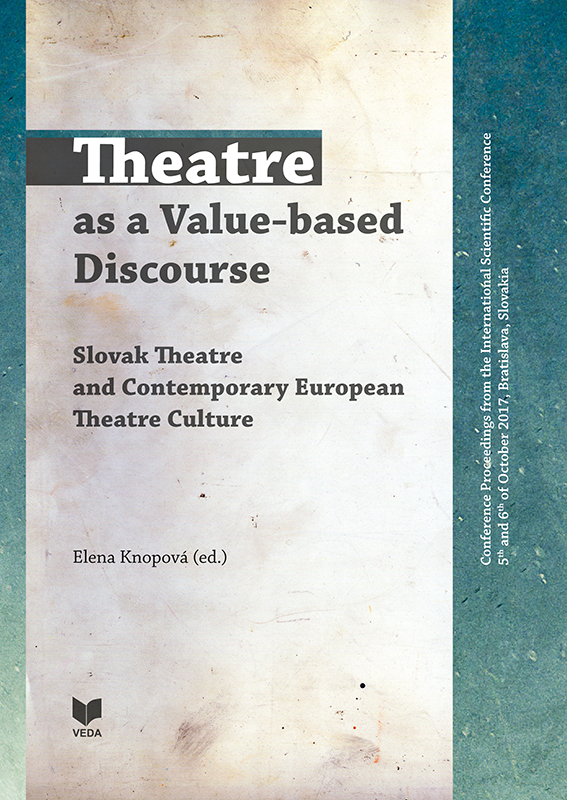Elena Knopová ed.
Theatre as a Value-based Discourse Slovak Theatre and Contemporary European Theatre Culture: Conference Proceedings from the International Scientific Conference 5th and 6th of October 2017 Bratislava, Slovakia
Art Research Centre of the Slovak Academy of Sciences, Institute of Theatre and Film Research, VEDA Publishing House of the Slovak Academy of Sciences
Publikované: 13. 6. 2022
Obsah:
Slovak Theatre as a European Entity, strany: 13-20 Full text
Detaily:
214 strán
Jazyk: anglický
O vydaní:
Vydavatelia: Art Research Centre of the Slovak Academy of Sciences, Institute of Theatre and Film Research, VEDA Publishing House of the Slovak Academy of Sciences
Rok vydania: 2018
ISBN 978-80-224-1705-1 (print), ISBN 978-80-224-1705-1 (online)
Typ knihy: editorovaná kniha
Verejná licencia:







